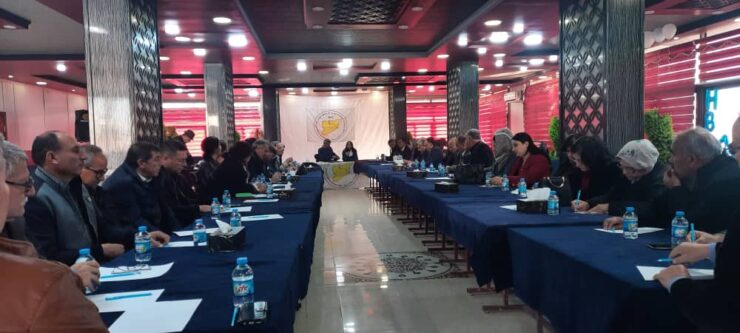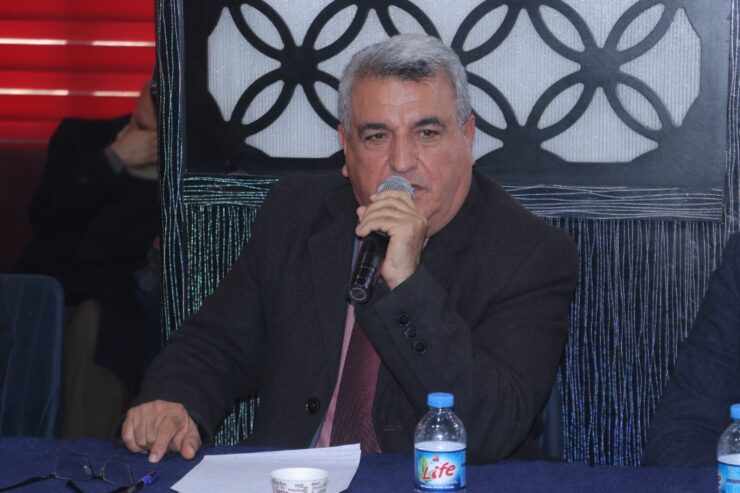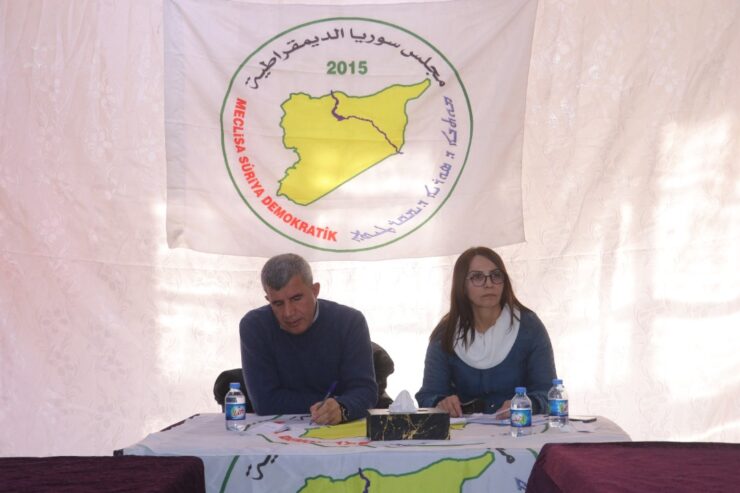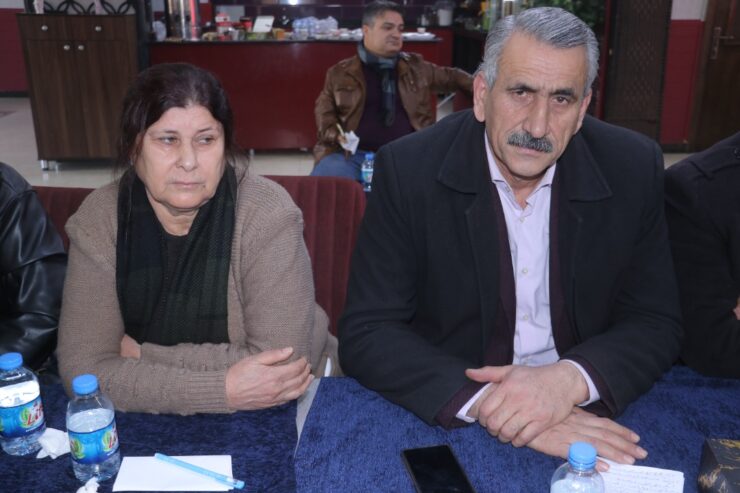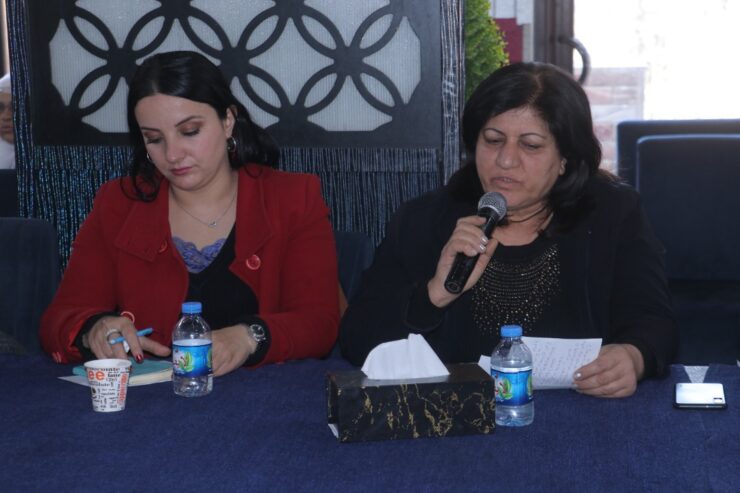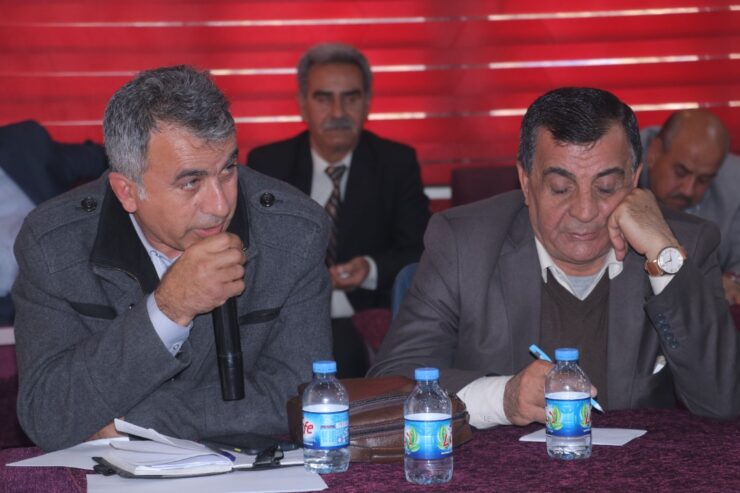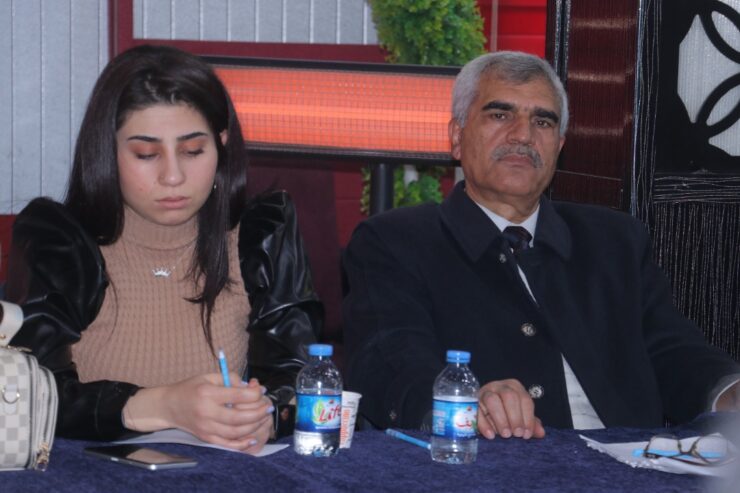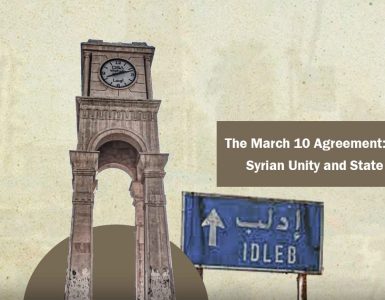In the city of Derik which is in the far northeastern Syria, and in the presence of a group of intellectuals and representatives of political parties and community events, the Syrian Democratic Council discussed the repercussions of “the trilateral meeting” on the path of a political resolution in Syria and its implications for the stability of the region and sustainable resolutions, and that was on Thursday.
The Co-chairman of the Relations Bureau of the Syrian Democratic Council, Hasan Muhammed Ali, spoke about international changes, the struggle of world powers for hegemony, the ongoing wars and the fate of the future in light of the sharp polarization and the absence of a prospective for effective resolutions.
Muhammad Ali referred to “the trilateral agreement” that took place in Moscow at the end of last year, and Turkey’s reaffirmation of its expansionist ambitions in the region at the expense of the interests of the peoples of the region and their revolutions.
The Co-chairman of the Relations Bureau pointed out the danger of these agreements on national resolutions in Syria as they are held to deprive the peoples of their right to achieve their aspirations in a pluralistic democratic state that accommodates diversity and respects difference.
Muhammad Ali also added that “the trilateral agreement” will not harm Syria alone, but that the Turkish goal goes beyond Syria to threaten the entire region, especially Arab national security, as Turkey seeks further expansion and influence, and Turkish officials have stated on the annexation of Syrian and Arab cities and towns as a part of a dangerous Turkish nationalist project.
The leader of the Syrian Democratic Council presented the vision of the council and the path it leads with a wide spectrum of Syrian democratic opposition powers to achieve the desired national project for a future Syria that is consistent with international Resolution 2254.
Muhammed Ali stressed the need to strengthen the internal front and the national cohesion to face the challenges and future entitlements.
The attendees including intellectuals and politicians enriched the symposium by their opinions and theses, which focused on the danger of side agreements that do not want the good for the country at the expense of national resolutions that represent the will and aspirations of Syrians.
The participants pointed to the need to develop the project of the existing Administration in the regions of northern and eastern Syria and support local dialogues to achieve broad participation.


